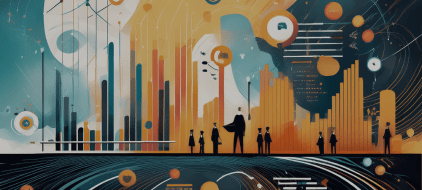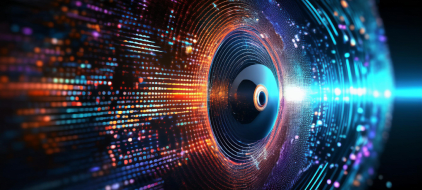The landscape of recruitment has evolved dramatically in recent years, thanks to the advent of artificial intelligence (AI). Traditional hiring processes, often laden with inefficiencies and biases, are being transformed by AI's ability to analyze vast amounts of data, identify patterns, and make decisions with unprecedented speed and accuracy. This article explores the multifaceted impact of AI on recruitment, highlighting the technologies driving this revolution, their benefits, challenges, and the future of AI-driven hiring.
The Technologies Behind AI in Recruitment
Artificial intelligence in recruitment encompasses a variety of technologies, each contributing to different aspects of the hiring process:
- Natural Language Processing (NLP): NLP enables machines to understand and interpret human language. In recruitment, NLP is used to parse resumes, analyze job descriptions, and even assess candidates' communication skills through their written responses or speech patterns during interviews.
- Machine Learning (ML): ML algorithms learn from historical data to make predictions and decisions. In recruitment, ML can be used to identify the best candidates by analyzing their past job performance, qualifications, and other relevant factors.
- Predictive Analytics: This technology uses historical data to predict future outcomes. Predictive analytics in recruitment can forecast a candidate's potential success in a role based on their past experiences and qualifications.
- Chatbots: AI-powered chatbots can engage with candidates in real-time, answering questions, scheduling interviews, and even conducting preliminary screenings. This technology streamlines communication and improves the candidate experience.
- Facial Recognition and Emotional AI: These technologies analyze candidates' facial expressions and emotions during video interviews, providing additional data points for assessing fit and suitability.
Benefits of AI in Recruitment
The integration of AI into recruitment processes offers several significant benefits:
- Efficiency and Speed: AI can process and analyze large volumes of applications much faster than human recruiters. This acceleration reduces time-to-hire, allowing organizations to fill positions more quickly and maintain productivity.
- Enhanced Candidate Screening: AI tools can screen resumes and applications with greater accuracy, identifying the most qualified candidates based on specific criteria. This reduces the likelihood of overlooking top talent.
- Bias Reduction: AI can help mitigate unconscious biases in recruitment by focusing solely on candidates' qualifications and experience rather than subjective factors. However, it is crucial to ensure that the AI itself is not biased.
- Improved Candidate Experience: AI-powered chatbots provide immediate responses to candidates' inquiries, keeping them engaged and informed throughout the recruitment process. This responsiveness enhances the overall candidate experience.
- Data-Driven Decisions: AI provides recruiters with data-driven insights, enabling more informed decision-making. Predictive analytics, for example, can help identify candidates with the highest potential for success in a given role.
- Cost Savings: By automating repetitive and time-consuming tasks, AI reduces the workload on HR teams, allowing them to focus on strategic activities. This efficiency translates into cost savings for organizations.
Challenges and Considerations
While AI offers numerous advantages, its implementation in recruitment is not without challenges:
- Bias in AI Algorithms: If the data used to train AI algorithms is biased, the AI itself can perpetuate these biases. It is essential to ensure that the training data is diverse and representative.
- Privacy Concerns: The use of AI in recruitment involves collecting and analyzing personal data, raising privacy concerns. Organizations must adhere to data protection regulations and ensure candidates' data is handled securely.
- Lack of Human Touch: While AI can streamline processes, it cannot replace the human element entirely. Building relationships and understanding candidates' unique qualities still require human interaction.
- Implementation Costs: Developing and integrating AI technologies can be expensive. Organizations need to assess the return on investment and ensure they have the necessary resources for successful implementation.
- Resistance to Change: Employees and recruiters may resist adopting AI technologies due to fear of job displacement or unfamiliarity with new tools. Proper training and change management strategies are crucial for successful adoption.
Real-World Applications and Success Stories
Numerous organizations have successfully integrated AI into their recruitment processes, yielding impressive results:
- Unilever: The global consumer goods company uses AI-powered digital interviews and game-based assessments to evaluate candidates. This approach has reduced hiring time by 75% and increased diversity by eliminating unconscious bias.
- IBM: IBM's AI tool, Watson Recruitment, analyzes historical hiring data to predict the best candidates for open positions. This has resulted in a significant reduction in time-to-hire and improved the quality of hires.
- Hilton Worldwide: Hilton uses AI chatbots to engage with candidates and answer their questions. This has improved candidate satisfaction and streamlined the recruitment process.
- L'Oréal: The cosmetics giant employs AI for resume screening, matching candidates with job openings based on their skills and experience. This has led to a more efficient and effective hiring process.
The Future of AI in Recruitment
The future of AI in recruitment looks promising, with several emerging trends set to shape the industry:
- Hyper-Personalization: AI will enable hyper-personalized candidate experiences, tailoring job recommendations, and communication based on individual preferences and behavior.
- Ethical AI: As awareness of AI biases grows, there will be a greater emphasis on developing ethical AI systems that promote fairness and diversity in recruitment.
- Integration with Other HR Technologies: AI will increasingly integrate with other HR technologies, such as performance management and employee engagement platforms, creating a seamless HR ecosystem.
- AI-Driven Talent Marketplaces: AI-powered talent marketplaces will match candidates with job opportunities in real-time, reducing friction in the job search process.
- Continuous Learning and Improvement: AI systems will continually learn and improve from new data, becoming more accurate and effective over time.
Conclusion
Artificial intelligence is revolutionizing recruitment by enhancing efficiency, reducing bias, and improving the candidate experience. While challenges such as bias in AI algorithms and privacy concerns must be addressed, the benefits of AI in recruitment are undeniable. As AI technologies continue to evolve, the recruitment landscape will become more data-driven, efficient, and equitable. Organizations that embrace AI in their hiring processes will be better positioned to attract and retain top talent, ultimately driving their success in an increasingly competitive market.








